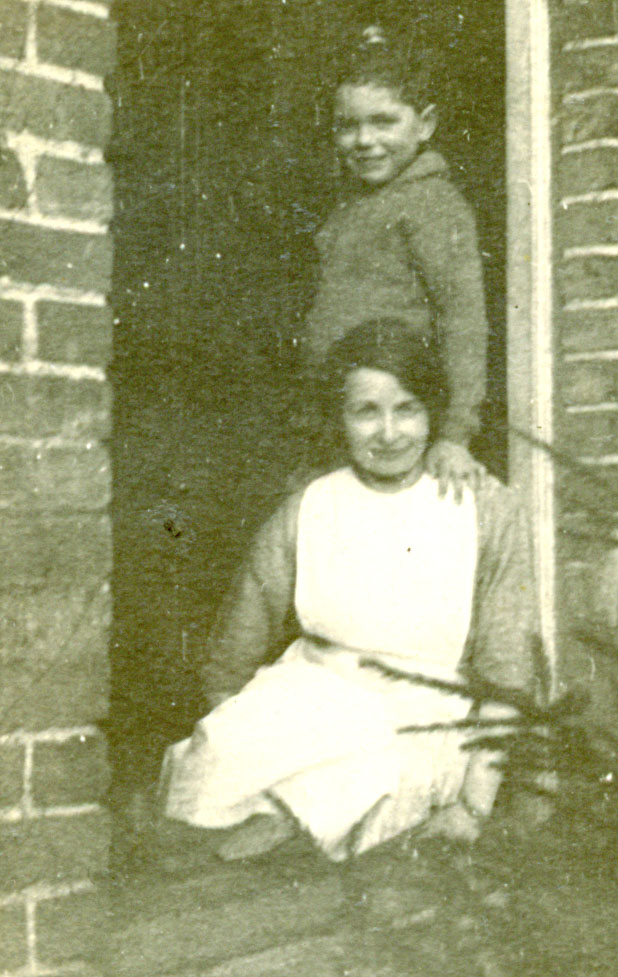Chapter 1: Childhood
My story starts with my parents’ wedding in 1914 in the Kentish village of Ringwould between Dover and Deal. My maternal grandfather, a parson, was given the living there through a family connection with the Monins family. The large Rectory was a happy family home with the Monins in the main house close by. The children of both families were brought up together and became lifelong friends.
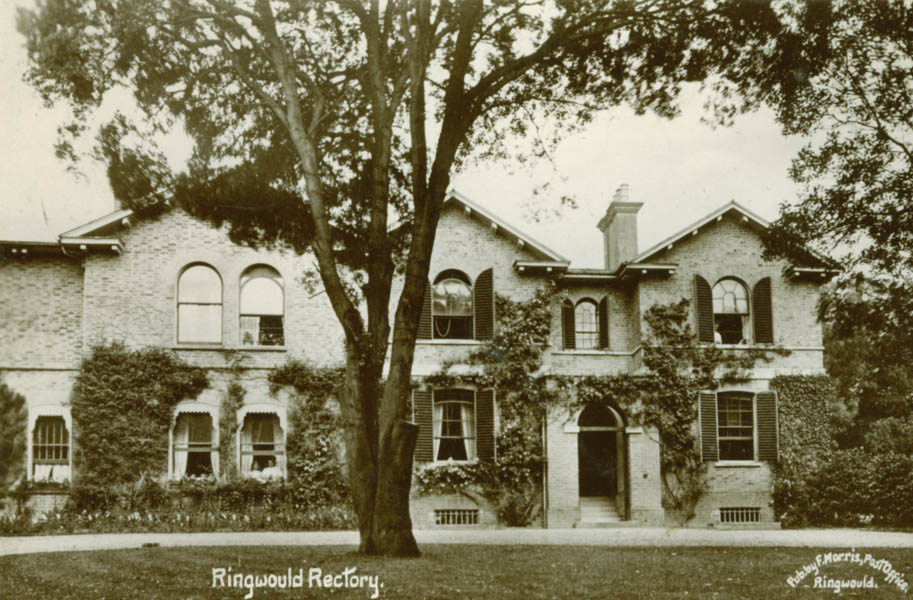
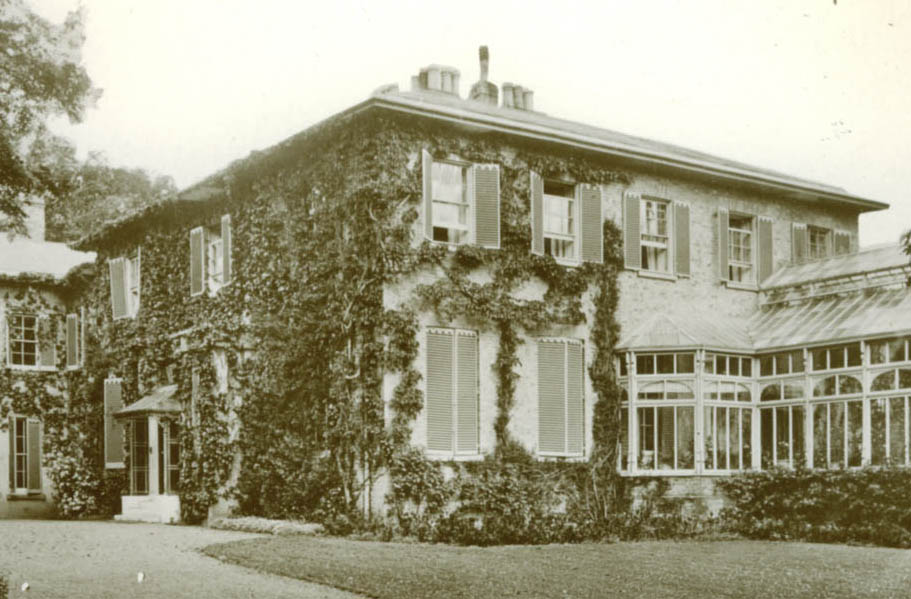
In one of the family scrapbooks I recently came across a report of my parents’ wedding which mentioned that Bridget Monins, a child at the time, had held the bride’s bouquet. I sent a copy of the report to her, now Mrs Toynbee and well into her nineties. Her reply said that she remembered it well. She also recalled walking to the station with Isla, my mother’s sister, where my father would catch a train back to military duty. My parents lagged behind. My Aunt Isla whispered to Bridget “Don’t look round - they are getting engaged”.
There had been an earlier hurdle to clear in those days, agreement on the Marriage Settlement. My godfather Cyril Nairne, who was a London solicitor, told me of the long debate that took place between the two fathers in his presence. After a suitable sum had been agreed the two nearly fell out over the timing of the payment. On my paternal side payment at once was suggested but the maternal side favoured delayed payment. Some accommodation was eventually achieved.
This may all sound like the plot of a Jane Austen novel. I tell it to illustrate that little had changed from Victorian times in my early life. In many ways I was brought up a Victorian.
My mother and father, Morah and Ralph, were married in December 1914 - just after the Great War started - and in those tempestuous times the next year was not to be a good one for the new family.
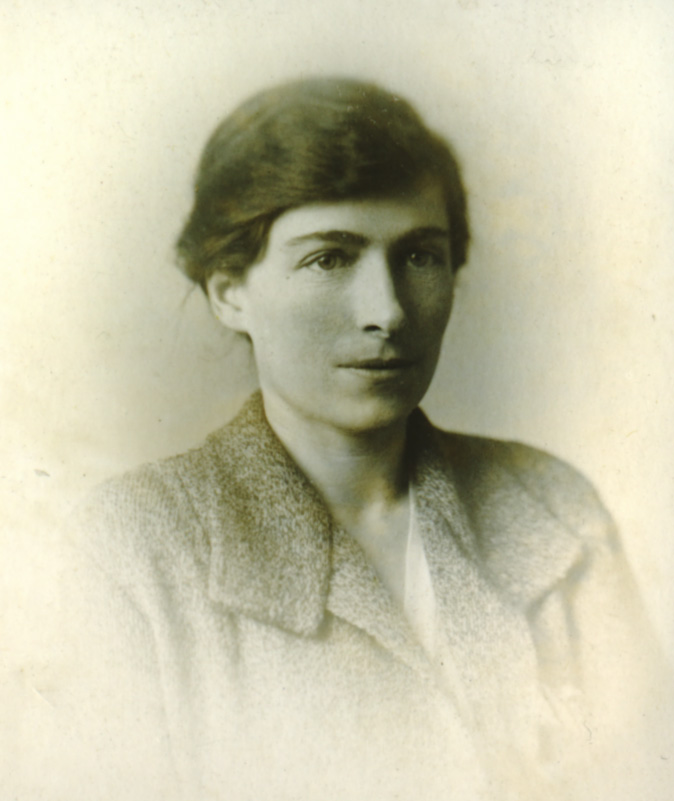
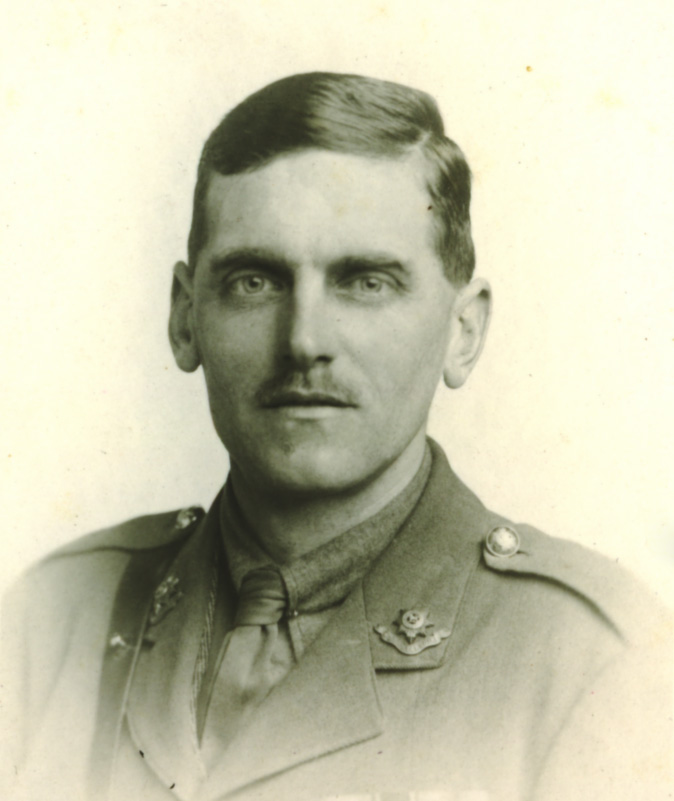
My father, a Regular Officer with the 4th Worcesters, went to Gallipoli in 1915 with the 13th Division, the Iron 13th. In August Sir Ian Hamilton reported:
‘The 13th Division under Major General Shaw had alone lost 6,000 men out of a grand total of 10,500. Baldwin commanding 38 Brigade was gone and all his staff. Ten Commanding Officers out of thirteen had disappeared from the fighting effectives. The Warwicks and the Worcesters had lost every single officer.’
Note: in military terms, ‘lost’ means left the theatre of war, so includes killed, wounded and otherwise hors de combat.
In these terrible circumstances Captain Ralph Horsfield, Company Commander, was lucky to escape with a serious arm wound. Evacuated to Alexandria he endured amputation above the wrist before repatriation to England. Luckily it was his right arm that he retained entire.
Ralph Horsfield wrote many letters back to his wife Morah during this campaign.
In September my elder brother Nigel was born and at Christmas the following year his nurse noticed that he did not look at the fairy lights. An examination established that ‘his eyes were badly pigmented’. He was blind. He did have some small vision and made the most of it, but was brought up reading braille. As far as my mother was concerned, worse things were happening all around her, though few today will have suffered such setbacks as she did by the age of twenty-two. It was not in her nature to dwell on the mishaps. Her positive approach gave her great strength.
I was born a Londoner, in St James Court at the home of my widowed paternal grandfather. The date 17 December 1916 was the second anniversary of my parents’ wedding. We soon moved to my mother’s parents, who were now living close to Bradford-on-Avon in Wiltshire. For the remaining war years and some time afterwards my father had a variety of military appointments, East Coast, Midlands and Yorkshire, so Fairfield House with its fine trees and walled garden is the first home I remember. With nurses in charge, my brother and I appear to have travelled the country for holidays with our mother who shared her time between her disabled husband and us. Beccles, Mylor and Falmouth, Scarborough, Conway and Portmadoc all get a mention.
In 1919 my father was appointed Adjutant of a TA (Territorial Army) Battalion of the Worcestershire Regiment in Kidderminster. No Quarter was provided so he bought a house. Of greater importance to the family, my younger brother, Malcolm, was born on the first of May 1920. Of sunny disposition from the start, he enabled my mother to enjoy maternity to the full after the considerable strains and difficulties of the first five years of her marriage.
A further important change for us was the arrival of a nursery governess to look after us and start our education. The selection process still mystifies me. She came from Inverness, so presumably there had been no interview and in the end the girl chosen took fright and sent her younger sister instead. Katharine MacGillivray arrived, was called Gill from then on and was an immense success. A diary kept on my behalf records that ‘I fought with her a good deal to start with’ but I have the happiest memories of the years she was with us ending when I went to boarding school. We kept in touch for decades. She switched to nursing and in due course became Matron of the Royal Infirmary in Inverness.
Another important acquisition was the diminutive May Powell who came to us as cook. She became one of the family, as servants often did in those days, knowing and being known by all the family and a wide range of relations. She served with us or with my mother’s sister for more than fifty years. During the war of my generation I would regularly receive from her a Christmas present of a half crown postal order even when I had attained the rank of Lieutenant Colonel.
In those far-off days there was no great premium on space for gardens, in our case providing both vegetables and fruit, a chicken run for eggs, a tennis court, stables and outbuildings and suitable lawns and flower gardens for strolling with one’s guests. There had to be room in the house for parents, children, staff and guests. We were towards the edge of Kidderminster with good walks from our doorstep.
My memories of the time form a personal time capsule: -
Pony cart with milk churn and a dip-in measuring can to pour milk into jugs. - The lamp lighter walking from street lamp to street lamp. - Horsed cabs more in use than taxis. - Dancing class - The silent cinema with Charlie Chaplin and Jackie Coogan - Tram trips to Stourport, somehow connected with macaroons. - The arrival of a gramophone - Humoresque and Gilbert and Sullivan. - Walks to a viaduct and the hope of seeing a train steam by. - The Railway station where, for a penny, you could print out your name on an aluminium strip. - Walks to a sandy cliff where sand martins abounded. - Mastering the art of riding a bicycle. - My father in uniform after Church parade, drawing his sword and chopping down cherries for us in our small avenue. - The smell of the wash room in the yard with its big ‘copper’ of boiling water and the mangle to squeeze water out of wet clothes. - The Wednesday washerwoman who was our laundry and her presenting me with a small bottle of her best dandelion wine. [family furore!]. - Fine frost patterns on winter kitchen windows. It was decades before central heating was experienced. Then there was the knife cleaner of those days before stainless steel. It was a two-foot high drum shaped device with a handle one could wind furiously to contrive the desired polishing of the blades.
Greatest of all there was the day when a T model Ford was collected [NP2591] and mobility came into our lives. For my one armed father it was an advantage that gear changing was a foot operation. Push the pedal half way down and lower gear engaged. Push it right down and you went backwards. The backward gear was the lowest ratio of the lot. For really steep hills you went up backwards. On these early Fords the accelerator, called the throttle, was hand operated. A modification some years later put this control on the floor.
1921 was a very hot summer. One restlessly hot night we were ushered from our beds to the car and took a night drive in the cooler air, a never-to-be-forgotten experience.
My final impression of Kidderminster was that we had many relations who came to stay. Much was to be discovered about our extended family later.
There was an echo from this past some sixty years later at a gathering of Burma veterans of the Battle of Kohima. I talked to a Worcester warrior and mentioned my Kidderminster childhood. He said “I remember Captain Horsfield at Ashbourne House”. Asked how he achieved this feat of memory he said that he had been a paperboy and we were on his round.
The County looks after its Territorial Army servants well. I was certainly impressed when a Rolls Royce was sent to pick us up for a children’s party at the Perrins of Worcester Sauce fame. I even recall what went on there.
Were there any disagreeable times? I suppose there were. I recall a number of fights over dress. Smocks were suitable wear for small boys. I did not agree. There was a struggle over the wearing of ‘cherry knickers’ for a party. I do not remember who won. Visiting my grandparents in Bath I was bought a smart overcoat which I disliked. It is reported that my revenge was to sit down in a large puddle outside the shop. In this way my mother and I, both strong-willed people, gradually developed a mutual respect and admiration for each other, which we enjoyed thereafter.
